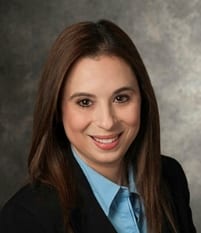Originally Posted: September 30, 2016
 The Southern California Mediation Association (SCMA) has chosen Dr. Betty Gilmore as the 2016 L. Randolph Lowry Award recipient. The award honors members of the dispute resolution community who have inspired others through their passion and dedication to education in the field of dispute resolution.
The Southern California Mediation Association (SCMA) has chosen Dr. Betty Gilmore as the 2016 L. Randolph Lowry Award recipient. The award honors members of the dispute resolution community who have inspired others through their passion and dedication to education in the field of dispute resolution.
Gilmore serves as director and faculty at the Center for Dispute Resolution and Conflict Management at Southern Methodist University where she teaches a variety of graduate courses in conflict engagement and peacebuilding. She also teaches for The Werner Institute for Negotiation at the Creighton School of Law and the Straus Institute for Dispute Resolution at Pepperdine School of Law. She also delivers training and professional presentations both nationally and internationally in the areas of conflict engagement, peacebuilding and human rights.
Gilmore will be the ninth recipient of the Lowry Award. Past recipients include Charles Chang, Russell Korobkin, A. Marco Turk, Peter Robinson, Thomas Stipanowich, Lee Jay Berman, Daniel Druckman and Deborah Masucci.
The L. Randolph Lowry Award will be presented to Gilmore during the kick-off dinner of the 28th Annual Southern California Mediation Association Conference on Nov. 4 in Malibu, Calif.
ABOUT THE AWARD:
The L. Randolph Lowry Award was established in 2005 and is named for L. Randolph Lowry III, a national leader in dispute resolution for over 20 years. He was the co-founder and first president of SCMA, founded the Straus Institute for Dispute Resolution at Pepperdine School of Law, and is the president of Lipscomb University in Nashville, Tenn. He has served in more than 40 states and six continents as a lawyer, mediator, author, consultant and teacher in the areas of conflict management consulting, systems design and training.

 SMU Dispute Resolution students won every award category during the 5th Annual Graduate Program Mediation Competition hosted by SMU’s Center for Dispute Resolution and Conflict Management, April 1-2, in Plano.
SMU Dispute Resolution students won every award category during the 5th Annual Graduate Program Mediation Competition hosted by SMU’s Center for Dispute Resolution and Conflict Management, April 1-2, in Plano. As a lawyer, mediator, SMU faculty member and manager of SMU-in-Plano’s Conflict Resolution Center, Angela Mitakidis has helped people resolve conflicts all over the world. She finds the techniques she uses to resolve disputes in international court referred cases are just as effective around the holiday dining table.
As a lawyer, mediator, SMU faculty member and manager of SMU-in-Plano’s Conflict Resolution Center, Angela Mitakidis has helped people resolve conflicts all over the world. She finds the techniques she uses to resolve disputes in international court referred cases are just as effective around the holiday dining table.